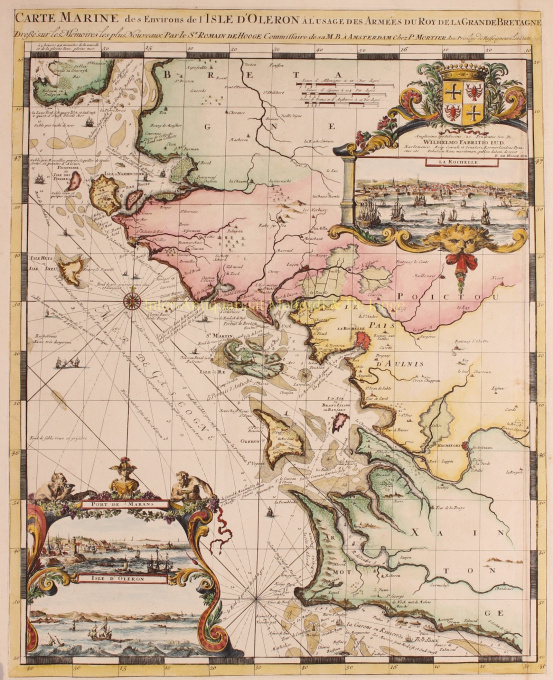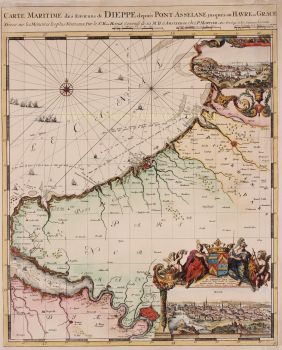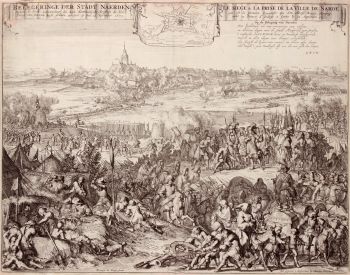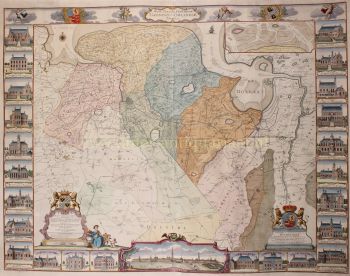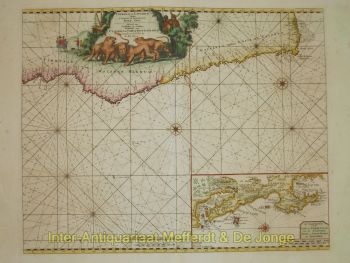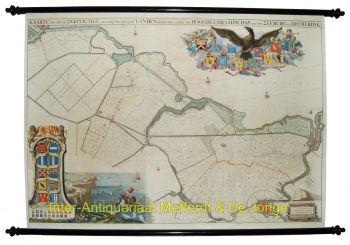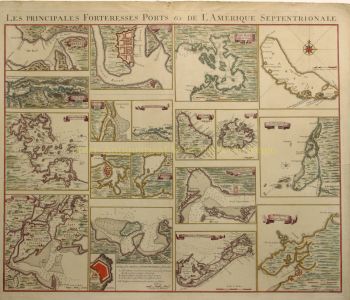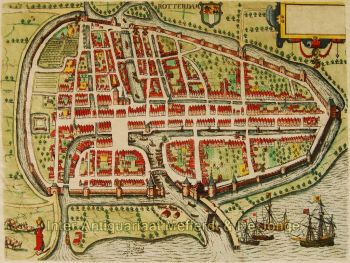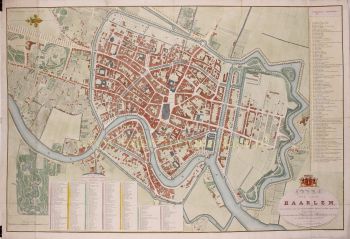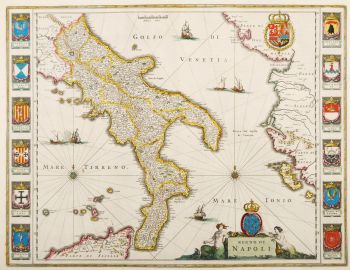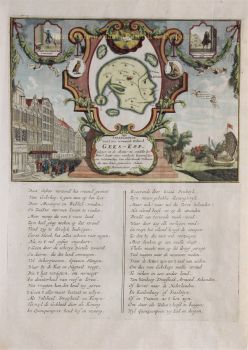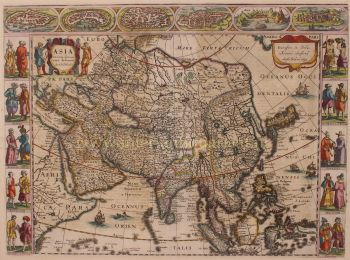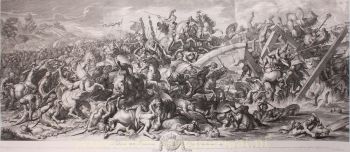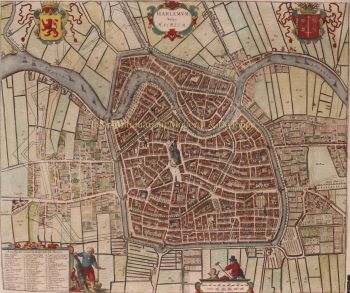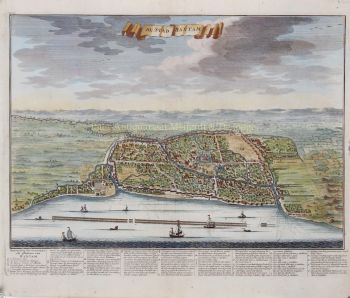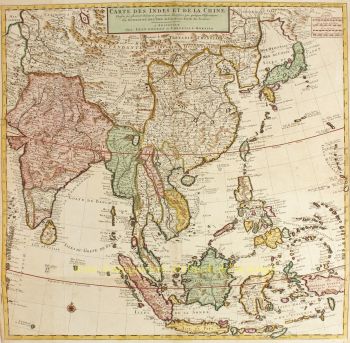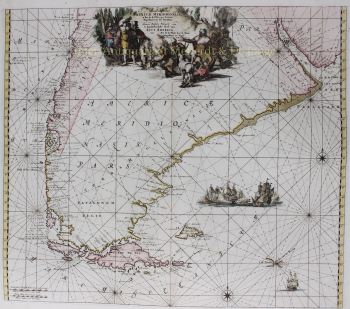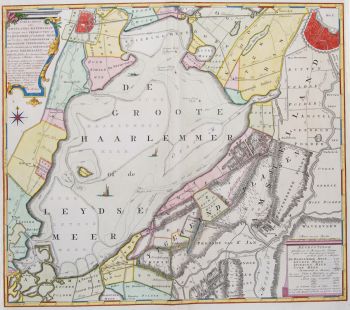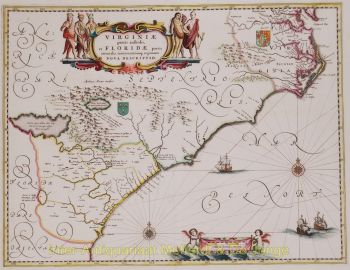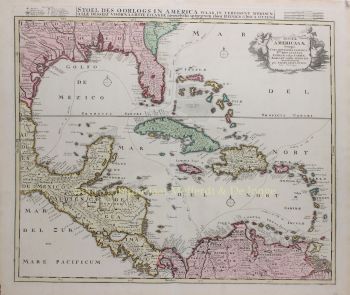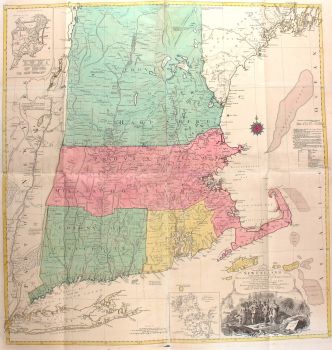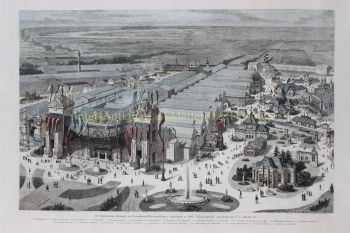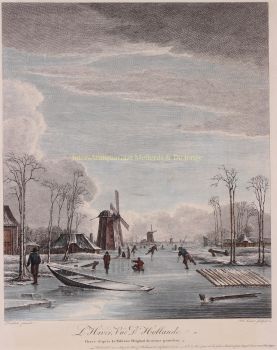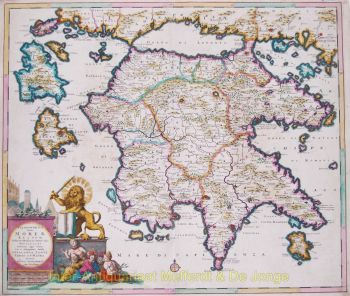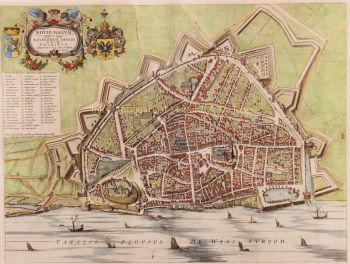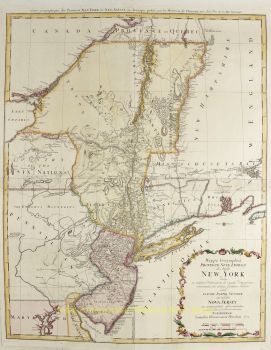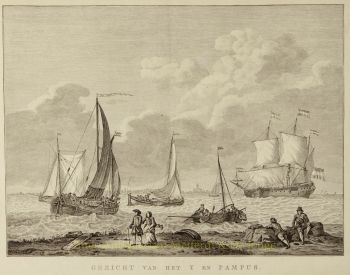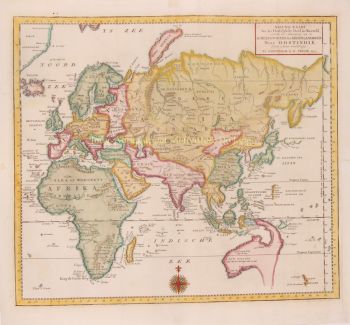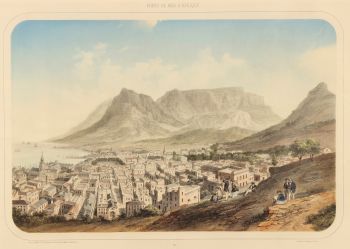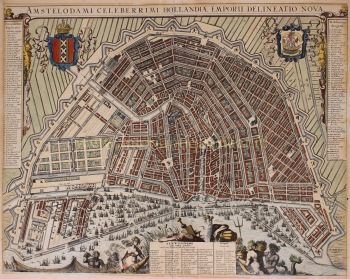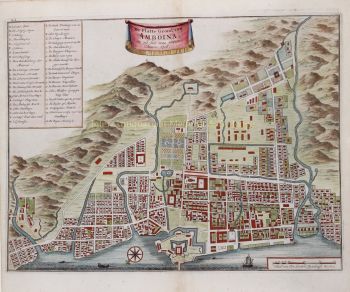France- Charente-Maritime 1693
Romeijn de Hooghe
€ 1.350
Inter-Antiquariaat Mefferdt & De Jonge
- Sur l'oeuvre d'art
BEAUTIFUL CHART OF THE FRENCH ATLANTIC COAST "Carte Marine des Environs de l’Isle d’Oleron", copper engraving made by Romeijn de Hooghe and published by Pieter Mortier of Amsterdam in 1693. Coloured by a later hand. Size: 59 x 48 cm. Elaborately etched and engraved chart of the French Atlantic of the coast off nowaday Charente-Maritime, extending from the Gironde Estuary in the South to the mouth of the Loire and Brittany (Bretagne) in the North, centered on the Pertuis d'Antioche strait with Îsle de Ré and La Rochelle. With a history of invading English, Îsle de Ré’s main port Saint-Martin was fortified in 1681 as a component of the belt of forts and citadels built to protect the military harbour of Rochefort (on the river Charente). With large inset views of La Rochelle, the port Marans and the island of Oléron, along with a decorative cartouche and dedication coat of arms. The Gironde is subject to very strong tidal currents, still today great care is needed when navigating the estuary. The lighttower of Cordouan stands at its entrance, already in 1694. Throughout the map there is detailed navigational information, such as currents, tides, the nature of the seabed, the harbours and indications of the water depths, reefs, shoals and sandbanks. The map is from the “Cartes marines a l'usage des armées du Roy de la Grande Bretagne”, the second part of the “Neptune François”, in which charts are larger and more lavishly decorated than those of any preceding book of this kind. This magnificent work was intended more as a show piece than something to be used by pilots at sea. (According to Cor Koeman it is “the most expensive sea-atlas ever published in Amsterdam in the seventeenth century”.) This part of the atlas, which contains nine charts, constitutes "the most spectacular type of maritime cartography”. It was prepared for the use of William III who needed accurate information on the Channel coasts for his war plans against Louis XIV of France. In 1694 he sent an expedition to attack several of the ports which are illustrated in the etched vignettes that decorate these charts. What has won their lasting fame, however, is the identity of their author: the artist-engraver Romeijn de Hooghe (1645-1708). Since he undertook all stages of production himself, the charts exhibit a rare harmony of design and execution. The allegorical subjects which characterise his designs are here transformed into dramatic cartouches. Price: Euro 1.350,-
- Sur l'artiste
Romeyn de Hooghe (1645, Amsterdam - 1708, Haarlem) était un graveur, dessinateur d'estampes, peintre, sculpteur, orfèvre, médaillé, avocat, éditeur de cartes et auteur d'écrits historiques. En 1673, Romeyn épousa Maria Lansman, la fille d'un ministre. Ils vivaient à Amsterdam sur le Reguliersgracht. Il a illustré des livres, par exemple Hieroglyphica of Merkbeelden der oude volkeren (1735), un livre emblématique bien connu et un livre de référence pour la mythologie classique et son iconographie. Il a également illustré des livres de Constantijn Huygens et d'Hugo de Groot. En 1675, il possédait un magasin d'art dans la Kalverstraat. En 1677, il illustre le voyage de Coenraad van Klenck à Moscou. Il a réalisé de nombreuses gravures, entre autres les feux d'artifice sur le Hofvijver à La Haye. Un certain nombre de gravures de De Hooghe ont été désapprouvées par certaines personnes, car elles montraient des sujets honteux. D'un autre côté, il était considéré comme un grand satiriste graphique. De Hooghe était un propagandiste de la politique anti-française. Il a peint de grands panneaux pour les salles du bureau du maire d’Enkhuizen. En 1690, il s'installe à Haarlem, où il commence des cours de dessin de patrons pour enfants sur le Nieuwe Gracht 13.
Êtes-vous intéressé par l'achat de cette oeuvre?
Artwork details
Related artworks
- 1 - 4 / 24
- 1 - 4 / 12

